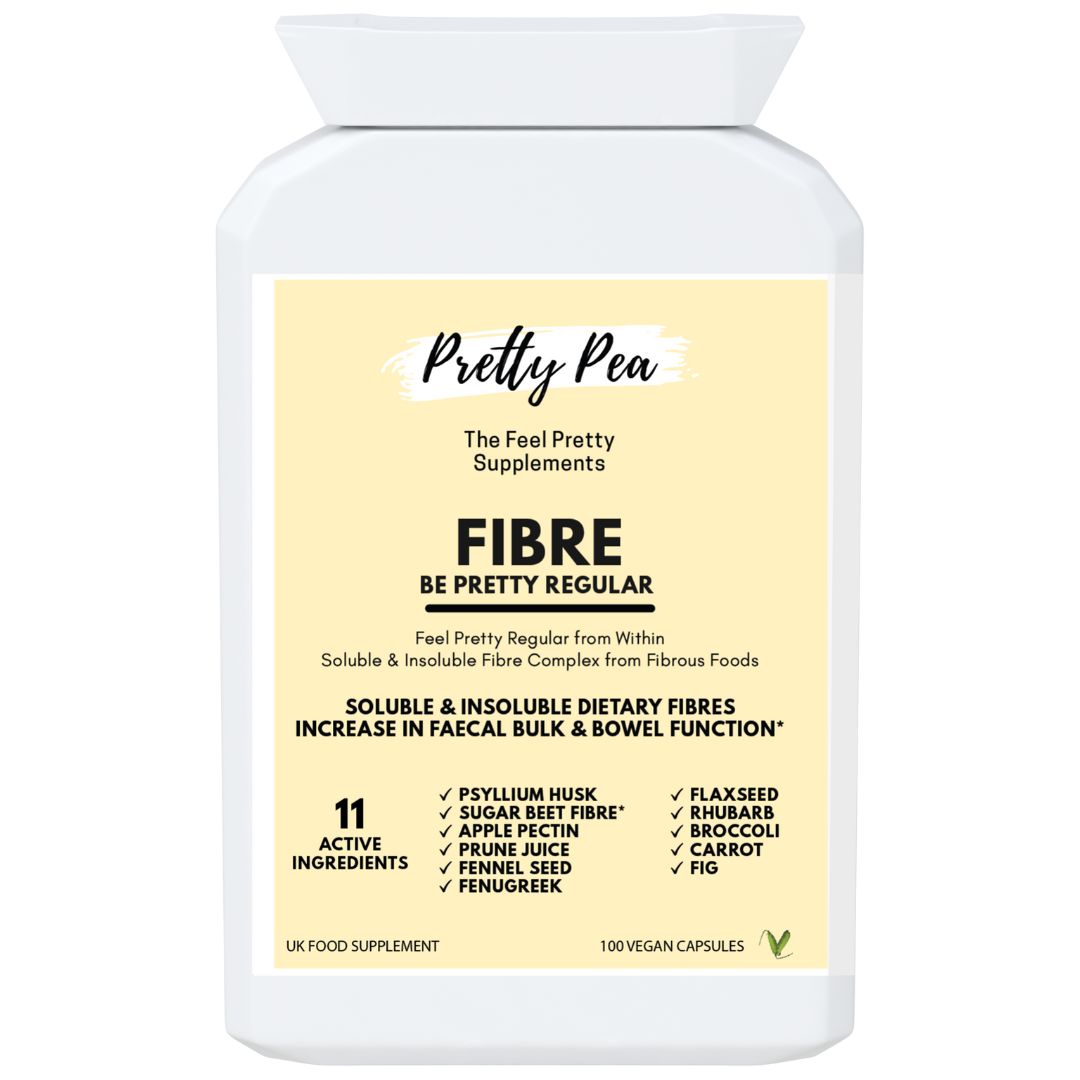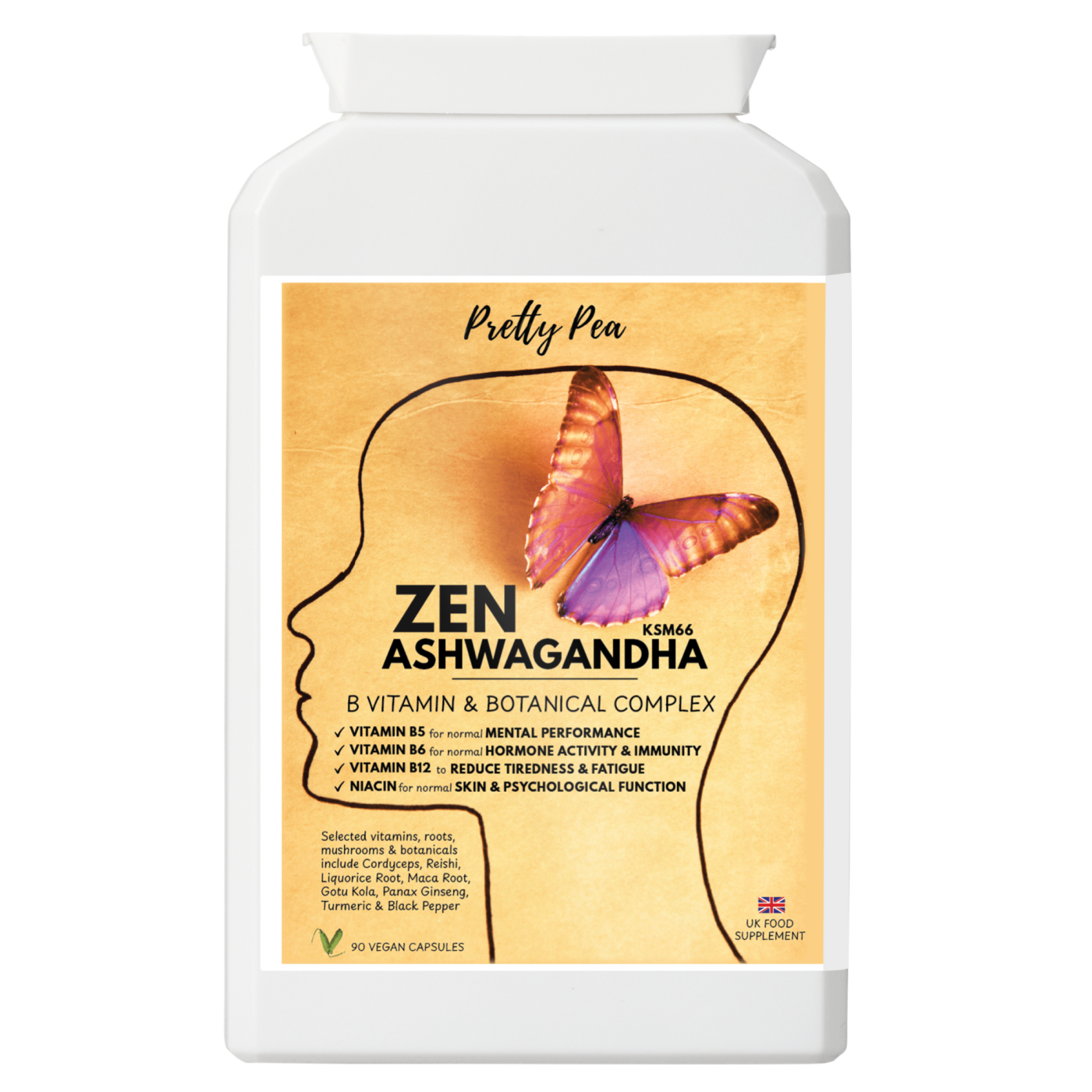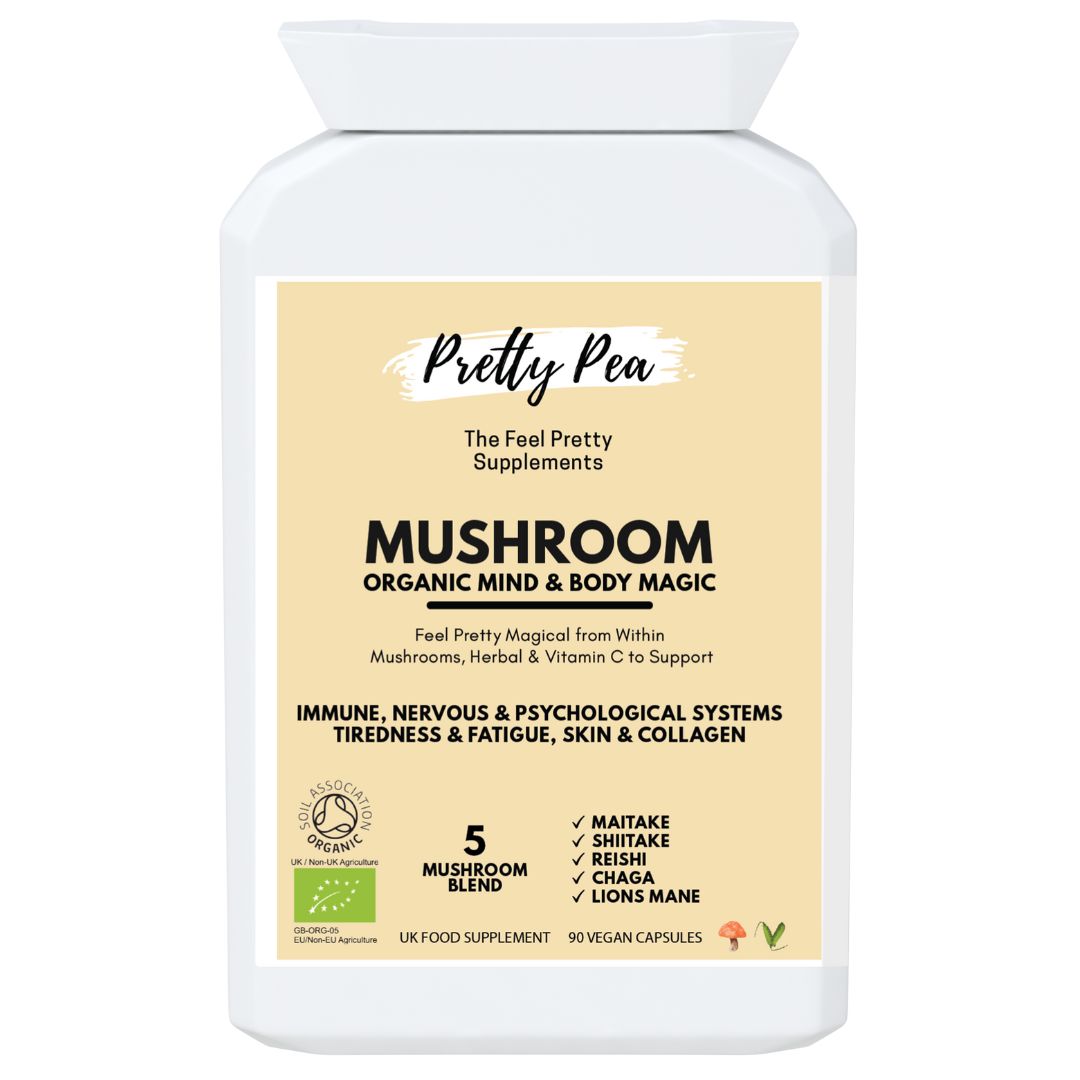- 1. Rich in Antioxidants
- 2. Supports Heart and Cardiovascular Health
- 3. May Enhance Brain Function and Alertness
- 4. Potential Role in Weight Management
- 5. Can Green Tea Benefit PCOS?
- 6. Supports Blood Sugar Regulation
- 7. May Protect Brain Health with Aging
- 8. Oral Health Benefits
- 9. Longevity and Overall Mortality
- 10. Supporting Healthy Skin
- RELATED ARTICLES
Green tea is one of the most consumed beverages worldwide, revered for centuries- and for good reason. Unlike many “superfoods” that rise and fall with trends, green tea has been studied for decades, with thousands of scientific papers exploring its impact on health helping us catch up to what ancient cultures have long known- that green tea is much more than a refreshing beverage – it’s a powerhouse of health benefits. So let’s delve into green tea benefits.
Studies1 suggest that green tea may contribute to a reduction in the risk of cardiovascular disease and even some forms of cancer, as well as enhancing brain power, promoting oral and skin health, balancing body weight and blood sugar control, bone mineral density and other physiological functions such as anti-bacterial and anti-virasic activity, solar ultraviolet protection and more.
This article shares 10 science-backed green tea benefits, and how this simple drink (or supplement) can transform your well-being. The secrets contained in each cup of this ancient brew are nothing short of extraordinary.
1. Rich in Antioxidants
Green tea is a concentrated source of polyphenols, particularly catechins such as epigallocatechin gallate (EGCG).
These compounds have strong antioxidant potential, helping protect cells from oxidative stress.
📖 Study highlight 2: “Catechins in green tea have significant free radical scavenging activity, reducing oxidative damage to DNA, lipids and proteins”.
Green tea contains numerous components with antioxidant activity: polyphenols (especially catechins), minerals, vitamins.
Green tea contains more catechins than black or oolong teas.
Catechins also possess antimutagenic, antidiabetic, anti-inflammatory, antibacterial and antiviral properties.
Why it matters: Oxidative stress contributes to aging and chronic diseases. Regular consumption of antioxidant-rich beverages like green tea may help reduce this load.
SHOP MENO SHAPE GREEN TEA ON AMAZON
2. Supports Heart and Cardiovascular Health
Several studies suggest green tea may benefit heart health by improving cholesterol profiles, blood vessel function, and circulation.
Green tea has been linked to:
- Reduced LDL cholesterol (“bad” cholesterol)
- Improved endothelial function (blood vessel flexibility)
- Reduced oxidative stress in arteries
The antioxidants in green tea, particularly catechins, have been shown to improve heart health by reducing inflammation and preventing the oxidation of LDL cholesterol.
Oxidized LDL cholesterol can lead to the formation of plaques in the arteries, increasing the risk of heart disease. By inhibiting this process, green tea helps maintain healthy blood vessels and reduces the risk of cardiovascular problems.
Green tea benefits heart health by improving blood lipid levels. Studies have indicated that regular consumption of green tea can lower total cholesterol and triglycerides while increasing HDL (good) cholesterol.
These effects contribute to a healthier lipid profile and reduce the risk of atherosclerosis, a condition characterized by the hardening and narrowing of the arteries.
Additionally, green tea can help regulate blood pressure, further enhancing cardiovascular health.
📖 Study extract: A large meta-analysis found: “an increase in green tea consumption of 1 cup/d has been associated with a 10% decrease in the risk of developing coronary artery disease (CAD).3
Furthermore, the more cups of green tea consumed, the lower the risk of CAD. The dose-response relationship between green tea consumption and the prevention of CAD showed that the risk of CAD gradually decreased as green tea consumption increased.
Why it matters: Heart disease remains one of the leading causes of death worldwide, and green tea offers promising benefits for cardiovascular health / coronary artery disease.
Incorporating green tea into your diet can be a simple yet effective way to support heart health.
3. May Enhance Brain Function and Alertness
Green tea benefits are traditionally known to induce mental clarity, cognitive function, physical activation and relaxation thanks to its combination of caffeine and L-theanine.
Green tea naturally contains caffeine, though in smaller amounts than coffee, alongside L-theanine, an amino acid that promotes relaxation without drowsiness.
📖 Study extract: “The combination of caffeine and L-theanine improved performance in attention-switching tasks and reduced susceptibility to distraction”4
A study compared 50 mg caffeine, with and without 100 mg L-theanine, on cognition and mood in healthy volunteers looking at the effects of these treatments on word recognition, rapid visual information processing, critical flicker fusion threshold, attention switching and mood. They found:
Caffeine improved subjective alertness at 60 min and accuracy on the attention-switching task at 90 min
The L-theanine and caffeine combination improved both speed and accuracy of performance of the attention-switching task at 60 min
The combination also reduced susceptibility to distracting information in the memory task at both 60 min and 90 min
What else is known..
Caffeine was found to mainly improve performance on demanding long-duration cognitive tasks and self-reported alertness, arousal, and vigor.
Significant effects already occurred at low doses of 40 mg.
L-theanine alone improved self-reported relaxation, tension, and calmness starting at 200 mg.
L-theanine and caffeine combined were found to particularly improve performance in attention-switching tasks and alertness, but to a lesser extent than caffeine alone.
Moreover, L-theanine was found to lead to relaxation by reducing caffeine induced arousal.
These results replicate previous evidence which suggests that L-theanine and caffeine in combination are beneficial for improving attention, memory and performance on cognitively demanding tasks.
Why it matters: Green tea provides a more balanced, steady lift in mental alertness compared to coffee, supporting focus and productivity without jitters.
SHOP MENO SHAPE GREEN TEA ON AMAZON
4. Potential Role in Weight Management
Some studies indicate that green tea extract may reduce body weight and fat.5
Green tea catechins, particularly powerful EGCG, have been shown to enhance fat oxidation and increase the metabolic rate.
Studies suggest consuming green tea can increase calorie burning by approximately 4-5% in 24-h energy expenditure promoting fat oxidation, whilst small, may translate to significant weight loss over time.
Importantly it’s not just weight loss, green tea can help reduce body fat, particularly abdominal fat.
Decreased nutrient absorption in the gastrointestinal tract has also been proposed as a potential mechanism explaining its anti-obesity effects.
📖 Study extract: “Green tea catechins combined with caffeine significantly increased energy expenditure and fat oxidation”6
A combination of green tea-caffeine has the potential to improve weight maintenance, through increased thermogenesis, fat oxidation, and sparing fat free mass. 7


SHOP MENO SHAPE GREEN TEA ON AMAZON
Study Highlight: A recent meta-analysis of 11 trials reported an average body weight loss of 1.31 kg over an average period of 12 weeks.
The Evidence: Results from a number of randomized trials have shown that consumption of green tea catechins (270 mg to 1200 mg/day) may reduce body weight and fat.8
Why it matters: Green tea benefits may provide a natural, gentle metabolism boost, making it a useful tool for weight maintenance when combined with other healthy habits.
It’s important to note: green tea is not a weight-loss cure but may complement a balanced diet and active lifestyle.
5. Can Green Tea Benefit PCOS?
Polycystic ovary syndrome (PCOS) often comes with challenges like irregular cycles, weight gain, and insulin resistance. Emerging research suggests that green tea benefits may offer some support.
Study highlight: A recent review of clinical trials found that women with PCOS who took green tea supplements experienced a significant reduction in body weight compared with a placebo group. 9
The study concluded that green tea benefits have potential positive effects for the reduction of weight and could be a helpful complementary option alongside lifestyle and medical management of PCOS, however further studies are needed to support these early results.
Key takeaway: Green tea isn’t a cure, but it may support weight management and overall health in women with PCOS when paired with a balanced diet, regular movement, and medical care.
6. Supports Blood Sugar Regulation
Green tea catechins (GTC) may play a role in supporting metabolic health, including blood sugar control.
📖 Study extract: “Green tea catechins improved glucose tolerance and insulin sensitivity” 10
A 5 year Japanese study11 of total of 17,413 men and women examined the relationship between green, black, and oolong teas and diabetes. It found:
Consumption of green tea and coffee was inversely associated with risk for diabetes after adjustment for age, sex, body mass index, and other risk factors.
Total caffeine intake from these beverages was associated with a 33% reduced risk for diabetes.
These inverse associations were more pronounced in women and in overweight men.
No association was found between consumption of black or oolong teas and the risk for diabetes.
Why it matters: While not a replacement for medical treatment, green tea benefits may help support healthy blood sugar levels, making it a useful addition to a balanced diet.
SHOP MENO SHAPE GREEN TEA ON AMAZON
7. May Protect Brain Health with Aging
Research suggests long-term green tea consumption may be linked to reduced risk of neurodegenerative conditions such as Alzheimer’s and Parkinson’s disease.
📖 Study extract: “Habitual green tea consumption was associated with reduced risk of cognitive decline in elderly populations”
Why it matters: Supporting brain health as we age is essential. Green tea’s combination of antioxidants and neuroprotective compounds may help protect memory and cognitive function.
The combination of caffeine and L-theanine in green tea creates a unique synergy that can improve cognitive performance.
Caffeine is a well-known stimulant that increases alertness and concentration, while L-theanine promotes relaxation and reduces anxiety.
Together, these compounds can enhance brain function without the jittery effects often associated with high caffeine consumption.
Studies have shown that green tea can improve various aspects of brain function, including memory, attention, and reaction time.
The presence of antioxidants such as catechins also plays a role in protecting the brain from oxidative stress, which is linked to neurodegenerative diseases like Alzheimer’s and Parkinson’s.
Regular consumption of green tea may help reduce the risk of these conditions and support overall brain health.
Moreover, green tea can enhance mood and mental well-being.
How it works: The amino acid L-theanine increases the production of dopamine and serotonin, neurotransmitters that regulate mood and emotions.
This can lead to improved feelings of happiness and relaxation, making green tea an excellent choice for those seeking to enhance their mental clarity and emotional balance.
SHOP MENO SHAPE GREEN TEA ON AMAZON
8. Oral Health Benefits
Green tea contains catechins that have antibacterial effects against oral bacteria such as Streptococcus mutans, which is linked to tooth decay.
📖 Study extract: “Green tea catechins exhibited strong antibacterial activity against oral pathogens and reduced dental plaque formation” 12
How it works 1: The catechins in green tea possess antimicrobial properties that can help reduce the growth of bacteria in the mouth, particularly Streptococcus mutans, which is a leading cause of tooth decay. By inhibiting the growth of this bacteria, green tea benefits helps prevent cavities and promotes dental health.
How it works 2: Green tea benefits support oral health by reducing bad breath. The polyphenols in green tea can neutralize sulfur compounds produced by bacteria in the mouth, which are responsible for bad breath. Drinking green tea or using green tea mouthwash can help freshen breath and maintain oral hygiene.
How it works 3: Additionally, green tea’s anti-inflammatory properties can benefit gum health. Inflammation of the gums, known as gingivitis, can lead to periodontal disease if left untreated.
The antioxidants in green tea reduce inflammation and promote healthy gums, reducing the risk of gum disease. Incorporating green tea into your oral care routine, whether through drinking or using green tea-infused products, can support overall dental and gum health.
Why it matters: Regular green tea consumption may help maintain fresher breath and contribute to overall oral hygiene when combined with brushing and flossing.
9. Longevity and Overall Mortality
Several large population studies suggest green tea drinkers may live longer.
📖 Study extract: In a Japanese cohort of over 40,000 adults, “Green tea consumption was inversely associated with all-cause mortality, particularly from cardiovascular disease”13
A Japanese study of 40,530 Japanese adults aged 40 to 79 years without history of stroke, coronary heart disease, or cancer investigated the association between green tea consumption and mortality, and found:
Green tea consumption was inversely associated with mortality due to all causes and due to cardiovascular disease.
The inverse association with all-cause mortality was stronger in women.
The inverse association with cardiovascular disease mortality was stronger than that with all-cause mortality.
Among the types of cardiovascular disease mortality, the strongest inverse association was observed for stroke mortality.
Why it matters: While no single food guarantees longevity, green tea may support healthier aging and reduced disease risk when enjoyed regularly as part of a balanced lifestyle.
10. Supporting Healthy Skin
Green tea benefits extend beyond internal health; it also offers remarkable advantages for skin health. Green tea catechins enhance the body’s defence mechanisms both inside and out by protecting against oxidative stress.
The antioxidants in green tea, particularly EGCG, protect the skin from damage caused by free radicals and UV radiation.14
Free radicals are unstable molecules that can cause oxidative stress and accelerate the aging process. By neutralizing these harmful molecules, green tea helps maintain youthful and radiant skin.
Green tea’s anti-inflammatory properties can also help soothe skin conditions such as acne, rosacea, and eczema.
The polyphenols in green tea reduce inflammation and redness, promoting clearer and calmer skin.
Additionally, green tea can help regulate sebum production, which is beneficial for individuals with oily or acne-prone skin.
Its antimicrobial properties further support skin health by reducing the growth of bacteria that can cause acne.
Green Tea Benefits : Takeaway
Green tea is one of the most researched superfoods, with evidence suggesting benefits for heart health, brain function, metabolism, and longevity. While it’s not a cure-all, regular consumption of green tea can be a powerful addition to a healthy lifestyle.
You’ll find Green Tea in Pretty Pea Meno Shape supplements, shaping women from the inside out. SHOP MENO SHAPE GREEN TEA ON AMAZON
Frequently Asked Questions About Green Tea Benefits
1. Does green tea burn fat?
Some studies suggest green tea catechins (especially EGCG) combined with caffeine may slightly increase fat oxidation and energy expenditure.
📖 One study reported: “Green tea extract increased 24-h energy expenditure by 4% and fat oxidation by 35% compared with placebo”
However, effects are modest—green tea alone will not cause significant weight loss but may support weight management when paired with diet and exercise.
2. How many cups of green tea should I drink per day?
Most studies showing benefits used 3–5 cups per day (about 600–900 mg of catechins).
For safety, it’s generally recommended not to exceed 8–10 cups daily due to caffeine content and potential effects on iron absorption.
3. Is matcha healthier than regular green tea?
Matcha is powdered whole green tea leaves, so you consume the entire leaf rather than just the infusion. This means matcha typically provides higher levels of antioxidants, caffeine, and L-theanine than regular brewed green tea.
📖 Study extract: “The catechin content of matcha is at least three times higher than that of conventional green tea”.
4. Can green tea reduce the risk of heart disease?
Yes, several large population studies link green tea consumption with lower cardiovascular risk.
📖 Example: In a study of over 40,000 Japanese adults, those who drank 5+ cups per day had a 26% lower risk of cardiovascular death compared to non-drinkers
5. Does green tea improve brain function?
Green tea contains caffeine and L-theanine, which together improve alertness, focus, and relaxation.
📖 Study extract: “The combination of caffeine and L-theanine improved performance in attention tasks and reduced mental fatigue”
This makes green tea a gentler alternative to coffee for sustained focus without jitters.
6. Are there any side effects of drinking green tea?
For most people, green tea is safe in moderation. Possible side effects include:
- Caffeine sensitivity (insomnia, jitters, fast heartbeat)
- Reduced iron absorption if consumed with meals (best to drink between meals)
- High-dose extracts (e.g., supplements) have occasionally been linked to liver issues—rare but worth noting
Most people tolerate 3–5 cups daily without issue. If you have a medical condition, consult your doctor before using concentrated extracts.
7. Is decaffeinated green tea still healthy?
Yes. While decaf green tea contains less caffeine, it still provides beneficial catechins and antioxidants. However, some decaf processing methods may slightly reduce catechin levels.
Green Tea Benefits : Sources
- Beneficial effects of green tea–a review – PubMed ↩︎
- Beneficial effects of green tea–a review – PubMed
↩︎ - Black and green tea consumption and the risk of coronary artery disease: a meta-analysis – PubMed ↩︎
- The combined effects of L-theanine and caffeine on cognitive performance and mood – PubMed
↩︎ - Antiobesity effects of green tea catechins: a mechanistic review – PubMed ↩︎
- Efficacy of a green tea extract rich in catechin polyphenols and caffeine in increasing 24-h energy expenditure and fat oxidation in humans – PubMed
↩︎ - Green tea catechins, caffeine and body-weight regulation – PubMed
↩︎ - Antiobesity effects of green tea catechins: a mechanistic review – PubMed ↩︎
- Green tea promotes weight loss in women with polycystic ovary syndrome: Systematic review and meta-analysis – PubMed
↩︎ - The relationship between green tea and total caffeine intake and risk for self-reported type 2 diabetes among Japanese adults – PubMed
↩︎ - The relationship between green tea and total caffeine intake and risk for self-reported type 2 diabetes among Japanese adults – PubMed
↩︎ - Antimicrobial properties of green tea catechins – PubMed
↩︎ - Green tea consumption and mortality due to cardiovascular disease, cancer, and all causes in Japan: the Ohsaki study – PubMed ↩︎
- Beneficial effects of green tea–a review – PubMed
↩︎
FIBRE CAPSULES
High fibre pills derived from psyllium husk, flaxseed, sugar beet, prune juice, fig fruit, rhubarb, pectin, fenugreek and other naturally high fibre botanicals and foods. More than just roughage, these fibre pills contains cellulose, pectin, hemicellulose, lignin and gums.
Fibre Pills Ingredients: Psyllium Husk, Flaxseed, Sugar Beet Fibre, Fenugreek, Apple pectin, Rhubarb, Prune Juice, Broccoli, Carrot, Fig Fruit, Fennel Seed. Vegan, Dairy Free, Gluten Free. 100 capsules
Ashwagandha Supplement plus B Vitamins
ZEN Ashwagandha supplement. Feeling stressed ? A synergistic blend of nature’s most powerful Adaptogens and Vitamins formulated to combat adrenal fatigue whilst supporting the immune system, energy levels, mental performance along with promoting a sense of calm, focus & vitality, with 1000% NRV of Vitamin B12.
Mushroom supplements
Organic mushroom supplement for mind & body, Chaga, Shiitake, Maitake, Reishi & Lions Mane mushrooms. Mind & body support, with Vitamin C for reduction of tiredness & fatigue, contribute to normal immune function, & protect cells from oxidative stress.
RELATED ARTICLES
The Menopause Diet 5 Day Plan to Lose Weight
List of The 100 Symptoms of Perimenopause
Early First Symptoms of Perimenopause – 7 Telling Subtle Signs
The Role of Perimenopause Vitamins Supplements: A Guide for Women
Why Fibre Could Be the Secret to a Better Menopause
The Ultimate Superfood List: What are Superfoods, Benefits, Best Choices, and How to Use









